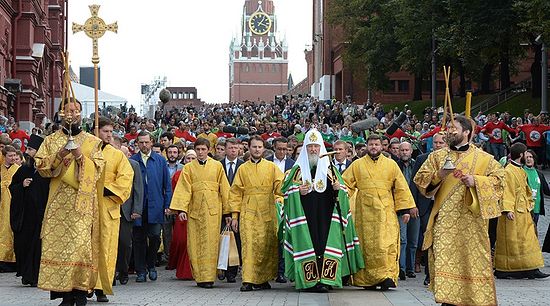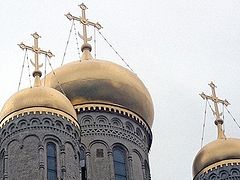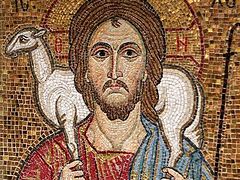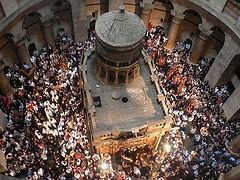Moscow, July 26, 2017
The percentage of Russians identifying themselves as atheists has fallen from 26 to 13% in the past three years, while those identifying themselves as “religious people” has risen from 35 to 53%, according to new research from the Moscow-based Levada Analytical Center.
The survey was conducted June 23-26 with a sample of 1,600 urban and rural 18-years and older Russians in 137 localities of the country’s 48 regions.
Christianity remains the dominant religion in Russia, and the vast majority of Russians—92-93%—have respect and goodwill for Orthodox Christians in the country. Only 1% expressed a dislike for Orthodox Christians. These results are only slightly different than those of December 2013. 74% responded with respect and good will towards Catholics, with only 5% confessing a feeling of hostility or fear.
Only 13% of Russians responded that they have a feeling of hostility or fear towards Muslims.
The percentage of those who consider themselves “religious people” has increased from 35 to 53%, while only 9% consider themselves “very religious,” and 33% “not very religious.” The percentage of atheists has fallen by half from 26 to 13% in the past three years.
However, the increase in number of believers is not necessarily accompanied by a deep faith or a sense of importance attached to religion. The number of those willing to adhere to the Great Lent restrictions has decreased 1.5-2 times in recent years, with 73% responding that they did not change their diet in Lent this year. 9% responded that they fasted in Holy Week, 15% partially fasted, and only 2% responded that they strove to keep the entire fast.
Concerning the Orthodox Church’s influence in state affairs, 28% believe the Church should have influence, 58% that it shouldn’t, but 39% believe that the level of the Church’s influence is currently exactly where it should be, with only 7% responding that it has too much influence, and 16% that it has slightly too much.




